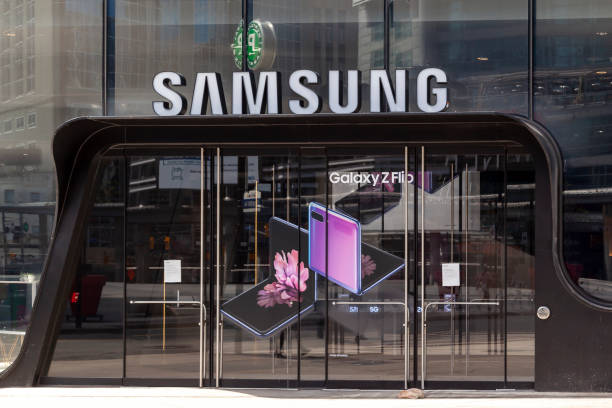When it comes to high-quality audio experiences, the samsung mx-hs8500/a interferencia choice among users. However, like any advanced audio equipment, it can occasionally experience issues with interference. Understanding what causes interference, how to identify it, and steps to resolve it can help you maintain clear and crisp sound quality. In this guide, we’ll dive deep into the causes of interference with the Samsung MX-HS8500/A, ways to fix it, and tips to prevent future issues. Let’s explore how to keep your audio system at its best.
What Causes Interference with Samsung MX-HS8500/A?
Interference with audio devices like the Samsung MX-HS8500/A can stem from various sources. Recognizing these factors is essential for effective troubleshooting.
Common Causes of Interference
- Electronic Device Overlap
Interference often occurs when other electronic devices are placed too close to the Samsung MX-HS8500/A. Devices like microwaves, routers, and mobile phones emit radio frequencies that can interfere with the audio system’s signals. - Wireless Connectivity Conflicts
The Samsung MX-HS8500/A may encounter interference from other devices using the same frequency range, particularly Wi-Fi routers or Bluetooth devices. This overlap can disrupt the system’s connectivity and lead to distorted audio output. - Physical Obstacles
Physical barriers, such as walls and metal objects, can hinder the transmission of sound or Bluetooth signals. This interference affects the quality and consistency of sound delivery, making it choppy or unclear. - Environmental Factors
High humidity, fluctuating temperatures, or dusty surroundings can impact the device’s performance, leading to sound interference.
How to Identify Interference in Samsung MX-HS8500/A
Recognizing interference issues is the first step toward resolving them. Below are some common symptoms and ways to determine if interference is affecting your device.
Recognizing Interference Symptoms
- Distorted Sound Quality
One of the most apparent signs of interference is poor sound quality, including crackling noises, interruptions, or muffled sound. - Intermittent Bluetooth Connectivity
If your Samsung MX-HS8500/A frequently disconnects from connected Bluetooth devices, this could indicate interference from nearby wireless devices. - Unusual Static or Buzzing Sounds
Static or buzzing sounds often signal interference from other electronics or nearby radio frequencies. - Fluctuating Volume Levels
Inconsistent volume levels without user adjustments may indicate signal interruptions caused by interference.
Steps to Resolve Samsung Mx-hs8500/A Interferencia
Once interference is identified, follow these steps to mitigate and prevent it.
Adjust Device Placement
- Move Nearby Electronics Away
Place the Samsung MX-HS8500/A away from devices that emit strong radio frequencies, such as microwaves or routers. A minimum of 3 feet distance can help reduce interference. - Minimize Physical Barriers
Try to place the Samsung MX-HS8500/A in an open space with fewer physical obstructions. This reduces the risk of signal disruptions due to walls or metal objects.
Optimize Wireless Connections
- Switch Wireless Channels
If interference stems from Wi-Fi routers, consider switching to a less congested channel on your router. This change minimizes the overlap of wireless signals, especially if you live in an area with multiple Wi-Fi networks. - Use Wired Connections
While Bluetooth is convenient, it can be prone to interference. If possible, use wired connections like an AUX cable or RCA inputs to bypass wireless issues entirely.
Environmental Adjustments
- Maintain Clean and Dry Surroundings
Regularly clean the device and keep it away from extreme temperature or humidity, which can affect performance. - Use Power Conditioners
Power conditioners help stabilize the power supply to your Samsung MX-HS8500/A, reducing interference from electrical fluctuations.
Preventing Future Samsung MX-HS8500/A Interference Issues
After resolving current interference issues, it’s essential to take preventive measures to avoid future disruptions.
Maintain Proper Device Settings
- Update Firmware Regularly
Samsung often releases firmware updates that include bug fixes and performance improvements. Ensure your device firmware is up-to-date to keep it running smoothly. - Adjust Device Settings for Optimal Performance
Some Samsung audio devices have settings to adjust signal sensitivity. Consult the manual to find optimal settings to reduce interference.
Consider Noise Reduction Accessories
- Use Ferrite Cores on Cables
Attaching ferrite cores to power and audio cables can minimize electromagnetic interference, especially in environments with heavy electronic use. - Invest in an EMI Filter
EMI (Electromagnetic Interference) filters help protect devices from external electronic disturbances. They are particularly effective if you experience consistent interference from nearby electronics.
Conclusion
The Samsung MX-HS8500/A is designed to deliver high-quality audio, but interference can compromise the listening experience. By understanding the common sources of interference, recognizing symptoms, and applying targeted solutions, you can enhance your audio system’s performance. Implementing preventive measures further ensures your device runs without interruptions, providing you with a seamless and immersive sound experience. Keep these tips handy to troubleshoot and avoid future interference, allowing you to enjoy your samsung mx-hs8500/a interferencia to its fullest potential.
FAQs
1. What types of devices cause interference with the Samsung MX-HS8500/A?
Electronic devices such as microwaves, Wi-Fi routers, and mobile phones can cause interference due to overlapping radio frequencies.
2. Can physical objects affect the performance of my Samsung MX-HS8500/A?
Yes, physical barriers like walls and metal objects can obstruct signals, leading to interference and reduced sound quality.
3. How often should I update the firmware on my Samsung MX-HS8500/A?
Updating firmware every few months or whenever Samsung releases updates is recommended to maintain optimal performance and reduce interference.
4. Can an EMI filter help reduce interference?
Yes, an EMI filter can be effective in reducing interference by blocking external electromagnetic disturbances.
5. Is it better to use a wired connection to avoid interference?
Yes, wired connections like AUX or RCA cables provide a more stable connection, reducing the risk of interference compared to Bluetooth.



